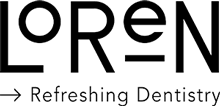
Table of Contents
- Key Points
- Why Is Oral Hygiene Important?
- Tips to Improve Oral Hygiene
- Get More Dental Hygiene Tips and Tricks
- References
Key Points
- Oral hygiene is central to maintaining good oral health.
- Good oral health has far-reaching implications in terms of overall health and reduced incidence of chronic disease.
- There are some basic steps to maintaining proper oral health that everyone can follow.
According to the Centers for Disease Control and Prevention, almost half of all children ages two to 19 in the United States have untreated dental caries (cavities or tooth decay).1 That incidence diminishes in older cohorts but remains a significant problem in American adults.
The main cause of gum disease and tooth decay is poor oral hygiene. There are many reasons that good hygiene can fall by the wayside, but the good news is that there are some fundamental practices you can employ to stay on top of it.
The article below explains what those are and how to implement them. It also covers why this is so important. Keep reading to learn effective tips to improve oral health.
There are many reasons that oral hygiene is important. Avoiding serious dental problems is at the top of the list.
Poor oral health, such as tooth loss, can have serious negative effects on individuals. These include psychological repercussions, from poor self-esteem to depression.2 People who experience tooth loss are also less likely to engage in social activities.
It can have functional impacts as well, like poor chewing and speech. Tooth loss can also affect the health of other teeth and the bone structure of the jaw.
The benefits of good oral hygiene go far beyond the consequences inside the mouth. Oral health problems are associated with an increased risk of certain diseases, including cardiovascular illness.3
Mouth bacteria can enter your bloodstream and infect other parts of your body. This can cause inflammation that leads to heart disease and other health issues. This is the same type of bacteria that is linked to pneumonia and respiratory infections.
Pregnant women are more at risk of complications due to poor oral health. Gum disease, for instance, is linked to preterm labor and low birth weights.4
Finally, if you currently have a chronic disease––like diabetes, osteoporosis, Alzheimer’s, or HIV/AIDS––oral health is of particular importance. Diabetes, for instance, lowers the body’s resistance to infection, which makes you more vulnerable to the effects of gum disease. Conversely, gum disease makes it harder for the body to regulate blood sugar levels.5
Tips to Improve Oral Hygiene
Fortunately, there are several things you can do to improve or maintain dental health. Following the oral hygiene steps below will help you attain positive health results and avoid negative outcomes.
Regular Brushing
One of the best teeth care tips at home is to brush at least twice a day. It is one of the easiest things you can do to stay on top of oral hygiene. Ensure you are brushing for at least two minutes every time.
Electric vs. Manual Toothbrushes
Electronic toothbrushes have been around since the 1960s. According to the Cleveland Clinic, along with innumerable studies, they are generally more effective than manual ones at reducing plaque and gingivitis.6
Electronic toothbrushes use either oscillating-rotating technology (where the brush head and bristles spin) or sonic waves that vibrate as you brush. Both methods help remove food and plaque. Besides providing a more thorough cleaning, electronic toothbrushes can be optimal for people with limited mobility from Parkinson’s, carpal tunnel, arthritis, or other issues that make it difficult to use a manual toothbrush.
Smartphone technology has taken things a step further. Smart toothbrushes send information to your phone (or another device), which can help keep you on track with brushing. They also use sensors to collect and display information and analysis about brushing routine and thoroughness on the app, which can also help you improve brushing habits over time.
On the flip side, manual toothbrushes are cheaper and more convenient than electric ones, and––if used properly––can be effective at cleaning teeth. They do not need recharging or batteries, and are more portable than electronic toothbrushes. Also, manual toothbrushes may be preferable for children or anyone who has a sensitivity to the vibrations of electric toothbrushes.
Toothpaste
The type of toothpaste you use also can impact brushing. The most important characteristic to look for is the American Dental Association’s (ADA) “ Seal of Acceptance,” which indicates that the toothpaste is safe and effective. The ADA also regulates the types and amounts of desensitizing agents in toothpaste.
The most important ingredient in toothpaste is fluoride. It keeps teeth clean and strong, and helps stave off cavities and plaque. Look for toothpaste with at least 1,350 parts per million of fluoride.
Finally, you might consider toothpaste for specific treatments, such as those with potassium nitrate and strontium chloride, which can calm tooth nerves for people with higher tooth sensitivity. However, not all additives are good. For instance, some whitening toothpastes have abrasive ingredients that will remove stains but could also damage tooth enamel in the process.7
Regular Flossing
Flossing at least once a day is as important as brushing. That is because it removes food particles lodged between teeth and in areas that a toothbrush cannot reach. Food remnants can lead to bad breath and contribute to plaque buildup. Flossing also helps remove existing plaque buildup from particularly problematic areas––namely those close to your gums––keeping it from hardening into tartar and triggering gum disease.
When choosing dental floss, consider waxed varieties that easily glide between teeth and are less likely to fray. Unwaxed floss may be more effective at cleaning between very tight teeth though.
You can also choose between varying levels of thickness and flavors, which can make the process more enjoyable. Floss picks can be easier to use, especially for children or people with dexterity issues. In general, the more floss qualities that make you likely to use it regularly, the better.
Mouthwash
Adding an antibacterial mouthwash to your oral health regimen is not as important as brushing or flossing, but it can further improve your dental hygiene in several ways. Its primary function is to kill bacteria that lead to plaque.
Most mouthwashes contain ingredients like alcohol, essential oils, or other antimicrobial agents that target bacteria that brushing and flossing fail to remove. This reduces the chances of plaque formation, the main culprit of cavities, gum disease, and inflammation of gums (gingivitis). Regularly using mouthwash has the added benefit of killing odor-causing bacteria that can lead to bad breath.
Do not swallow mouthwash and only use it as directed. If you have specific oral health concerns, consult your dentist to determine the best mouthwash to target these issues.
Diet and Lifestyle
A more holistic thing you can do to improve oral hygiene and address dental health concerns is to alter your diet and eliminate bad habits. Limiting sugary foods and drinks, which feed bacteria that can lead to gum disease and tooth decay, is a good place to start.
Acidic foods––including citrus fruits, sodas, and sports drinks––can erode tooth enamel, leading to cavities. Smoking and excessive alcohol consumption can significantly increase your risk of gum disease and myriad other oral health issues, including cancer.
There are also lots of foods that can promote good dental health. Fruits and vegetables––especially leafy greens––are rich in vitamins and minerals that promote healthy gums and teeth. Dairy products contain calcium and vitamin D, which help strengthen bones and tooth enamel.
You may be surprised to learn that managing stress can promote oral health. Stress contributes to teeth grinding (bruxism), which can wear down tooth enamel and cause jaw damage.8
Routine Dental Checkups
Scheduling regular dentist checkups is one of the best things someone can do to optimize oral hygiene. There are two reasons for this.
The first is accessing professional cleaning. A dental hygienist has the special knowledge and tools to thoroughly clean your teeth. They will be able to remove plaque and tartar buildup that is not achievable through brushing and flossing at home.
Dentists can also identify minor problems before they become major ones. As with other health issues, early detection is vital for combating gum disease, cavities, and oral cancer.
Finally, seeing your local dentist on a regular basis lets them to advise you on your particular oral health challenges and goals. They can recommend products and techniques that can help you maintain optimal oral health between visits.
Get More Dental Hygiene Tips and Tricks
Maintaining oral hygiene is pivotal for your dental and overall health. Implementing good practices can be a challenge, but it is possible. Following the steps above, including regular checkups at a reliable dentist, will ensure you stay on the right track.
References
- Stierman, Bryan, M.D., et al., “National Health and Nutrition Examination Survey 2017––March 2020 Prepandemic Data Files—Development of Files and Prevalence Estimates for Selected Health Outcomes,” National Health Statistics Reports, Centers for Disease Control and Prevention, June 2021, from: https://www.cdc.gov/nchs/data/nhsr/nhsr158-508.pdf.
- Shah, Rupal J., “A Study of the Emotional Effects of Tooth Loss in an Edentulous Gujarati Population and Its Association with Depression,” The Journal of Indian Prosthodont Society, July – September 2015, pgs. 237–243, National Library of Medicine, from: https://pmc.ncbi.nlm.nih.gov/articles/PMC4762342/.
- Kapila, Yvonne L., “Oral Health’s Inextricable Connection to Systemic Health: Special Populations Bring to Bear Multimodal Relationships and Factors Connecting Periodontal Disease to Systemic Diseases and Conditions,” National Library of Medicine, National Institutes of Health, from: https://pmc.ncbi.nlm.nih.gov/articles/PMC8457130/.
- Daalderop, LA, “Periodontal Disease and Pregnancy Outcomes: Overview of Systematic Reviews,” National Library of Medicine, National Institutes of Health, from: https://pmc.ncbi.nlm.nih.gov/articles/PMC6191679/.
- Kapila, National Institutes of Health, from: https://pmc.ncbi.nlm.nih.gov/articles/PMC8457130/.
- “Here’s Why You Should Be Using an Electric Toothbrush,” Cleveland Clinic, February 2023, retrieved on December 17, 2024, from: https://health.clevelandclinic.org/should-i-be-using-an-electric-toothbrush.
- Jamwal, Novadita, “Effect of Whitening Toothpaste on Surface Roughness and Microhardness of Human Teeth: A Systematic Review and Meta-analysis,” F1000 Research, National Library of Medicine, January 2022, from: https://pmc.ncbi.nlm.nih.gov/articles/PMC8874033/.
- Pavlou, Ioannis A., “Neurobiology of Bruxism: The Impact of Stress (Review),” Biomedical Reports, National Libary of Medicine, February 2024, from: https://pmc.ncbi.nlm.nih.gov/articles/PMC10895390/.

Dr. Brett Wells is the founder of Loren Dental, DentalHQ.com, and Wells Family Dental Group, which was recently awarded the Triangle Business Journal’s “2024 Best Places to Work” recognition. Dr. Wells has more than 20 years of experience practicing general and family dentistry, and has published widely in major medical journals, like Dental Economics and Inside Dentistry, on topics ranging from navigating dental insurance to advice for other dental practices and the impact of PPOs on dentistry. He is a graduate of the University of North Carolina-Chapel Hill Adams School of Dentistry and maintains memberships in various professional associations, including the American Dental Association, the Academy of General Dentistry, and the Dentist Entrepreneur Organization.
